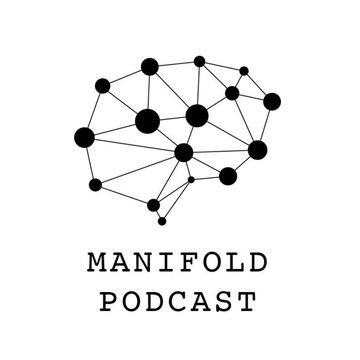

Gregory Clark
Economic historian known for research on social mobility and economic growth, professor at the University of Southern Denmark.
Top 5 podcasts with Gregory Clark
Ranked by the Snipd community

340 snips
Feb 19, 2025 • 1h 23min
Gregory Clark on Social Mobility, Migration, and Assortative Mating (Live at Mercatus)
Gregory Clark, an economic historian and professor, unpacks the puzzling nature of social mobility. He reveals that our life's trajectory is influenced by historical factors more than we think, with relative mobility rates unchanged for 300 years. The conversation dives into why England became a meritocracy and how assortative mating perpetuates inequality. Clark also discusses India's delayed industrialization, the complexities of immigration, and the role of family structure in shaping economic outcomes, raising profound questions about genetics and social status.

28 snips
Jun 16, 2022 • 1h 43min
Greg Clark: Genetics and Social Mobility — #14
Gregory Clark is Distinguished Professor of Economics at UC-Davis. He is an editor of the European Review of Economic History, chair of the steering committee of the All-UC Group in Economic History, and a Research Associate of the Center for Poverty Research at Davis. He was educated at Cambridge University and received a PhD from Harvard University.His areas of research are long-term economic growth, the wealth of nations, economic history, and social mobility.Steve and Greg discuss:0:00 Introduction2:31 Background in economics and genetics10:25 The role of genetics in determining social outcomes16:27 Measuring social status through marriage and occupation36:15 Assortative mating and the industrial revolution49:38 Criticisms of empirical data, engagement on genetics and economic history1:12:12 Heckman and Landerso study of social mobility in US vs Denmark1:24:32 Predicting cognitive traits1:33:26 Assortative mating and increase in population varianceLinks:For Whom the Bell Curve Tolls: A Lineage of 400,000 English Individuals 1750-2020 shows Genetics Determines most Social Outcomeshttp://faculty.econ.ucdavis.edu/faculty/gclark/ClarkGlasgow2021.pdfFurther discussionhttps://infoproc.blogspot.com/2021/03/genetic-correlation-of-social-outcomes.htmlA Farewell to Alms: A Brief Economic History of the Worldhttps://en.wikipedia.org/wiki/A_Farewell_to_AlmsThe Son Also Riseshttps://en.wikipedia.org/wiki/The_Son_Also_Rises_(book)Music used with permission from Blade Runner Blues Livestream improvisation by State Azure.--Steve Hsu is Professor of Theoretical Physics and of Computational Mathematics, Science, and Engineering at Michigan State University. Previously, he was Senior Vice President for Research and Innovation at MSU and Director of the Institute of Theoretical Science at the University of Oregon. Hsu is a startup founder (SafeWeb, Genomic Prediction, Othram) and advisor to venture capital and other investment firms. He was educated at Caltech and Berkeley, was a Harvard Junior Fellow, and has held faculty positions at Yale, the University of Oregon, and MSU.Please send any questions or suggestions to manifold1podcast@gmail.com or Steve on Twitter @hsu_steve.

5 snips
Oct 29, 2023 • 1h 10min
Gregory Clark: what has genetics to do with social status?
Dr. Gregory Clark, a past guest on this podcast, discusses his shocking finding that a simple genetic model explains social status distribution in England. He explains how wealth is passed down equally from mother and father, and that social mobility has remained unchanged for 400 years. Clark also reveals high rates of inheritance of social status in other societies.

Aug 7, 2025 • 57min
Famed Economic Historian, Gregory Clark, Reveals the Industrial Revolution's Secret Sauce
Gregory Clark, a British economic historian and professor, delves into the intriguing link between genetics and economic evolution. He discusses how the reproductive patterns of the elite during the Industrial Revolution shaped social mobility and status across generations. The conversation highlights the influence of wealth on fertility, explores education's role in social hierarchies, and touches on modern challenges in retirement planning. Clark raises provocative questions about genetic determinism and its effects on today's socio-economic landscape.

Jan 18, 2019 • 54min
Classical Economics and the New Poor Law with Gregory Clark
Gregory Clark discusses the impact of England's New Poor Law of 1834 on welfare provision, contrasting it with the Old Poor Law. They explore the economic critiques of poor relief payments, the implementation of workhouses, disparities in relief payments, worker migration patterns, and the impact of the New Poor Law on wages in different regions.


